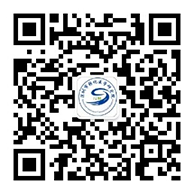National Administration of Traditional Chinese Medicine "Proteomics Tertiary Laboratory"
The "Proteomics Tertiary Laboratory" of the National Administration of Traditional Chinese Medicine is the only key proteomics laboratory in the Traditional Chinese Medicine (TCM) industry nationwide. This key laboratory currently has a team of over 30 full-time and part-time researchers, mainly composed of postdoctoral and doctoral returnees, including one foreign academician, one national-level expert with outstanding contributions, one excellent provincial expert, one of the top ten outstanding young science and technology leaders in Guangdong Province, and eight high-level talents in Shenzhen. The laboratory primarily conducts research on disease-associated saliva and serum proteomics, multi-omics integrated biomarkers, non-invasive molecular diagnostics, and micro-diagnosis in TCM. It has formed distinct features and significant advantages in the field of integrated molecular diagnosis and precision medicine of TCM and Western medicine.
The key laboratory was established in 2008 under the leadership of Professor Zhengzhi Wu, a foreign academician of the National Academy of Engineering of Ukraine. Academician Wu is a pioneer in the field of saliva proteomics and non-invasive molecular diagnostics combining TCM and Western medicine in China. He led his team to establish the first saliva protein fingerprint map and quantitative proteomics research, successfully establishing a research method and technical platform for saliva proteomics and multi-omics integration. The laboratory has pioneered research on saliva proteomics and multi-omics biomarkers and diagnostic models for major chronic diseases, exploring the modern biological basis and essence of TCM syndromes from the perspective of multi-omics and systems biology. It has established a series of highly sensitive and specific non-invasive molecular diagnostic models combining TCM and Western medicine, opening up new fields in molecular medicine and diagnostics. The research results of this laboratory have been widely applied in medical, educational, and research fields. In 2019, its TCM and integrated proteomics research directions were evaluated by the Guangdong Provincial Administration of Traditional Chinese Medicine as leading technical fields with early advantages nationwide.
The key laboratory has undertaken and completed more than 20 research projects related to proteomics, including those funded by the National Natural Science Foundation. It has published over 100 academic papers and applied for nearly 60 national invention patents. It has received more than ten provincial and ministerial-level science and technology awards, including the first prize of the Chinese Society of Integrative Medicine Science and Technology Award, the second prize of Guangdong Province Science and Technology Award, and the second prize of the Ministry of Education's Natural Science Award in 2022.
National Administration of Traditional Chinese Medicine "Principle and Application of Tongue Diagnosis" Key Laboratory
The "Principle and Application of Tongue Diagnosis" Key Laboratory of the National Administration of Traditional Chinese Medicine was approved in 2009 as one of the first national key TCM laboratories and is still the only national key TCM research laboratory in the field of tongue diagnosis. This key laboratory, led by Professor Zhengzhi Wu, a foreign academician of the National Academy of Engineering of Ukraine, mainly conducts research on disease-associated saliva, serum, and tongue coating proteomics, searching for proteomics characteristics, early diagnostic biomarkers, and syndrome patterns related to diseases. It has explored and established modern quantitative diagnostic models for common tongue coatings.
Academician Wu is a pioneer in the modernization of tongue diagnosis and the new discipline of micro-diagnosis in TCM. His related research received funding from the National Natural Science Foundation as early as 1990, and in 1993, he won the first prize of the National Education Commission's Natural Science Award. He also received the second prize of the Guangdong Province Science and Technology Award in 2006 and 2015. He is the most accomplished scholar in the field of tongue diagnosis research, having undertaken national research projects, published academic papers, and received provincial and ministerial-level science and technology awards. Over the years, he has led his team in pioneering research on the principles and objectification of tongue diagnosis, achieving many domestic leading scientific research results. His monograph "Research on the Principles of Tongue Coating" was included in the first batch of Guangdong Province Youth Scientists Academic Series, becoming the only original research work in the Guangdong provincial health system and a graduate textbook for the national key discipline (TCM Diagnostics).
In 2019, the key laboratory's main research direction, "Principles of Tongue Diagnosis and Micro-Diagnosis," was evaluated by the Guangdong Provincial Administration of Traditional Chinese Medicine as a leading technical field with early advantages nationwide. In July 2012, it successfully passed the first construction cycle assessment of the National Administration of Traditional Chinese Medicine with excellent results. In 2021, the laboratory was rated "excellent" in the performance evaluation of national key TCM laboratories organized by the National Administration of Traditional Chinese Medicine, achieving the highest score in Guangdong Province and receiving special funding from the central government.
The key laboratory currently has 19 full-time and part-time researchers, including 15 Ph.D. holders, one national-level expert with outstanding contributions, one excellent provincial expert, one of the top ten outstanding young science and technology leaders in Guangdong Province, and eight high-level talents in Shenzhen. It has one postdoctoral cooperative supervisor, one Ph.D. supervisor, and five master's supervisors. The team includes six postdoctoral fellows, five Ph.D. students, and five master's students. The key laboratory has undertaken more than 20 research projects related to "Principles and Applications of Tongue Diagnosis," published over 100 academic papers, applied for and obtained more than 50 patents, including 16 authorized international invention patents, and completed one national invention patent technology transfer. It has received 16 achievement awards, including the first prize in the National Education Commission's Natural Science Award, second prize in the Guangdong Province Science and Technology Award, and second prize in the Chinese Society of Integrative Medicine Science and Technology Award.egrative Medicine Science and Technology Award. The laboratory has also trained ten high-level scientific and technological leaders in Shenzhen.






